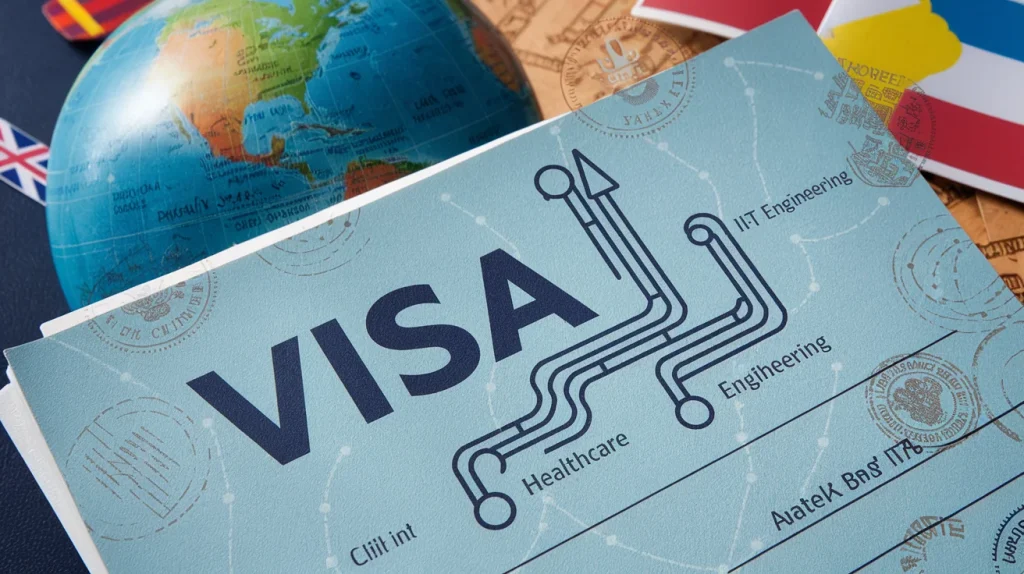As the global market evolves, certain skills experience substantial demand, making them invaluable to countries experiencing skill shortages. For skilled migrants seeking opportunities, acquiring a skills in demand visa can be a strategic pathway to both personal and professional advancement.
Understanding the Skills in Demand Visa
A skills in demand visa is designed to attract skilled workers to countries where there is a deficiency in specific industries. Typically, government immigration departments publish lists detailing the occupations that are in high demand. This type of visa allows individuals with the requisite skills and experience to live and work in the target country, thus filling the gaps in the labour market.
The Application Process
The application process for a skills in demand visa involves several steps. Firstly, it is essential to confirm that your occupation is listed on the current skills shortage list published by the government. Once confirmed, the next step is to ensure that you meet all qualifying criteria, including education, work experience, and language proficiency requirements. Documentation proving your eligibility will be an integral component of your application.
Skills Recognition and Assessment
A crucial part of the visa process is having your skills and qualifications recognised by the relevant authorities. Depending on the country, this may involve assessments by a professional body or government-appointed organisation. It is essential to research and prepare for these assessments to avoid any unnecessary delays.
Language Requirements
Proficiency in the official language of the target country is often a mandatory requirement. Most countries require candidates to take a language proficiency test, such as the IELTS, to confirm their ability to integrate into the workforce effectively. Fulfilling these language requirements will bolster your application and improve your chances of success.
Gathering Supporting Documents
The documentation required for a skills in demand visa application is comprehensive. Prospective migrants should prepare to submit personal identification, educational certificates, proof of professional experience, and language proficiency results. Careful organisation and verification of these documents are crucial to the success of the application process.
Sponsorship and Support
Some skills in demand visas require employer sponsorship. This means candidates must secure a job offer in the target country before applying. For certain countries, government support or nomination from a regional authority can also be a requirement. Understanding these conditions beforehand will streamline the preparation process.
Visa Fees and Costs
Applicants need to be aware of the financial implications of applying for a skills in demand visa. Application and processing fees can vary significantly from one country to another. It is advisable to prepare financially for these expenses early to ensure a smooth application process without unexpected setbacks.
Preparing for Interviews
As part of the selection process, candidates may be required to attend interviews. These interviews allow immigration authorities to assess the suitability of applicants for the visa. Preparing thoroughly by understanding the role you are applying for and the contribution you can make to the host country’s economy is vital.
Remaining Up-to-Date with Visa Changes
Laws and regulations governing visas frequently change. Staying informed about these changes can influence your eligibility and the overall process. Regularly consulting official immigration websites or contacting immigration services can provide you with accurate and updated information.
Exploring Permanent Residency Options
Possessing a skills in demand visa might also be the first step towards achieving permanent residency. Many countries offer pathways from temporary work visas to permanent residency for skilled migrants. Understanding these options early can help you plan your long-term future in your chosen country.
The Role of Immigration Consultants
Immigration consultants or solicitors can provide significant assistance throughout the visa application process. Their expertise can help mitigate complications, ensure compliance with all regulatory requirements, and increase the likelihood of a successful application.
Challenges Faced by Skilled Migrants
While the opportunities for skilled migrants are vast, challenges such as adapting to a new culture, securing accommodation, and understanding the local workforce landscape are common. Support groups and community resources can be invaluable in overcoming these obstacles.
Conclusion
The skills in demand visa represents a vital opportunity for skilled migrants aiming to advance their careers whilst contributing to a country’s economic development. By understanding the requirements and preparing thoroughly, skilled workers can successfully navigate the visa process and realise their ambitions in a new environment.

